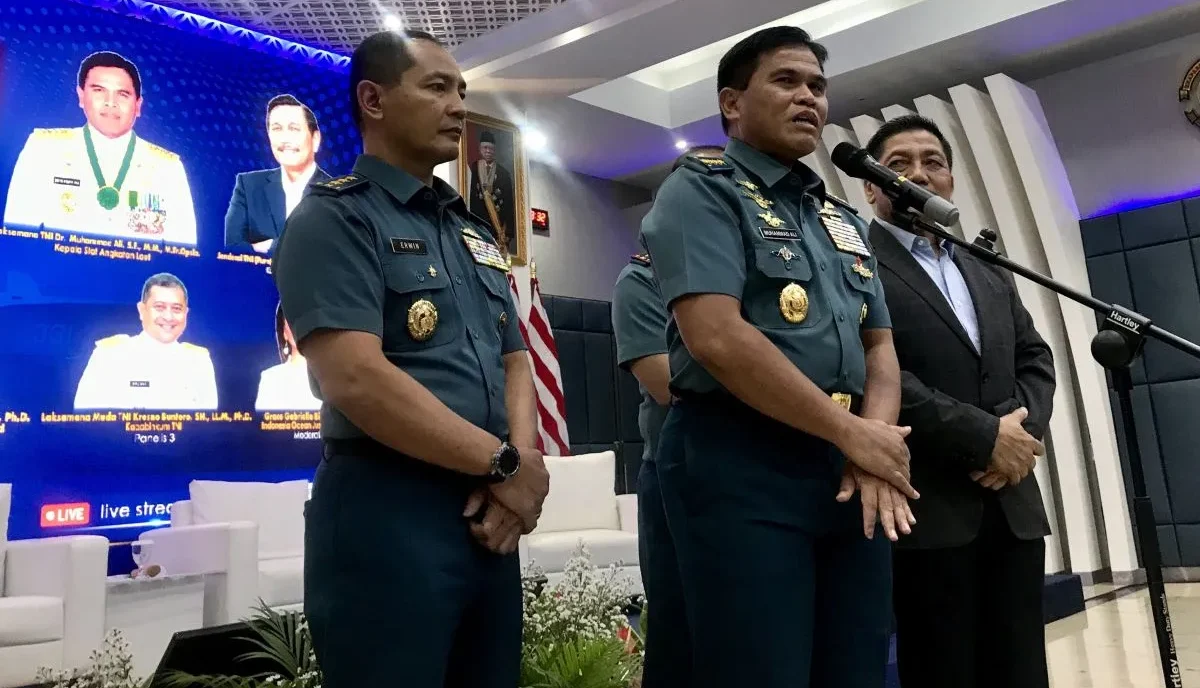WEB DESK: Indonesian Navy Chief of Staff Admiral Muhammad Ali discussed the procurement of several main weapons systems (alutsista) tools for the Indonesian Navy, including frigates and aircraft, with Defense Minister Prabowo Subianto.
The discussion took place on the sidelines of a limited meeting with President Joko Widodo (Jokowi) at the Presidential Palace, Jakarta.
“We discussed about the defense equipment for the Indonesian Navy, (including) frigates, aircraft, and others,” he stated when met on Tuesday.
Ali said Prabowo responded positively to the purchase proposal.
“Minister Prabowo wants to develop the Indonesian Navy. We must have a strong naval defense because Indonesia is an archipelago,” he emphasized.
This year, the Indonesian Defense Ministry announced the purchase of several defense equipment for the Indonesian Navy, including the Scorpene Evolved submarine made by Naval Group France, two OPV ships to be developed into frigates manufactured by Fincantieri Italy, and a submarine evacuation system (SRVS) made by Submarine Manufacturing & Products (SMP) England.
The ministry has also signaled its intent to purchase unmanned aircraft (drones) from Turkey, namely Bayraktar, made by Baykar and Anka, manufactured by Turkish Aerospace Industries. The Anka drone is expected to strengthen three Indonesian Defense Forces (TNI) services, including the Indonesian Navy.
Prabowo attended a limited meeting on Monday with several ministers from the Onward Indonesia Cabinet along with Admiral Ali and National Police Chief General Listyo Sigit Prabowo.
At the limited meeting, President Jokowi and his ranks discussed the government work plan (RKP), financial notes, and the Draft State Budget (RAPBN) for 2025.
The head of state also called on his ministers to accommodate all the programs of the elected presidential candidate in the preparation of these documents.
“I want the 2025 State Budget Draft to accommodate all programs of the elected presidential candidate,” he remarked.
However, the global economic slowdown must also be anticipated with its correlation to interest rate policies, as well as the heating up of the geopolitical environment, which will likely impact the food crisis and soaring oil prices.


